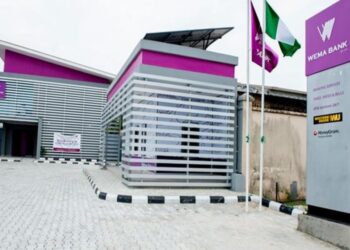The Central Bank of Nigeria (CBN) has issued guidelines aimed at reducing non-performing loans in the banking sector and to monitor chronic loan defaulters. This was disclosed in a circular the apex bank issued to all banks and other financial institutions tagged ‘Operational Guidelines on global standing instruction – Individuals.’
The Guidelines are expected to take off from August 1, 2020. The GSI guidelines give banks the power to debit loan and accrued interest due from bank accounts of loan defaulters across the Nigerian banking system. The NIBSS will manage the entire operations of the GSI on behalf of banks using customers Bank Verification Numbers (BVN).
Guidelines on global standing instruction
The circular, which was signed by the Director, Financial Policy and Regulation Department, CBN, stated,
“The Bankers’ Committee, at its meeting on February 18, 2020, approved the go-live on the Global Standing Instruction, which aimed at facilitating an improved credit repayment culture; reducing non-performing loans in the Nigerian banking system; and watch-listing consistent loan defaulters.”
“The banks would review and validate the GSI mandate instrument prior to loan disbursement. They would indemnify the Nigeria Inter-Bank Settlement System and other participating financial institutions from all liabilities that may arise from inappropriate use of the GSI infrastructure,” it added.
The CBN added that the banks would retain copies of physical or digital version of the executed GSI mandate and provide same when required. According to CBN, the participating financial institutions must execute the GSI mandate agreement with NIBSS.
It stated, “They must also ensure all qualifying accounts were properly maintained and visible to NIBSS on the industry customer accounts database or by any other service created or provisioned for this purpose.”
The guidelines stated that they must “ensure that accounts in NIBSS’ ICAD are correctly tagged with correct Bank Verification Number, and ensure and maintain connectivity to the Nigeria Central Switch.
How GSI will work
Bank borrowers are expected to sign a GSI mandate in hard copy or digital form. Once this is done all qualifying accounts are linked to his/her BVN.
- Qualifying accounts include savings accounts, current accounts, domiciliary accounts, domiciliary accounts, investment accounts and joint accounts.
- These accounts are all expected to be linked to a BVN. If for any reason the borrower has an account that is not linked to their BVN, the account will be watch listed.
- Once a borrower defaults on an outstanding principal and interest, the bank instructs NIBSS to debit the bank account of the defaulter.
Back story
Last year the central bank revealed plans that it was in conjunction with the NIBSS and the Bankers’ Committee agreeing to launch an initiative that will allow lenders to recover loans from deposit accounts of loan defaulters from any bank or financial institution in the country. This was a process that started in May 2019 by the bankers committee “declaring war” on non-performing loans.
In August, CBN Deputy Governor Aishah Ahmad, the Deputy Governor of the CBN at the end of the meeting of the Bankers’ Committee held in Abuja revealed that they have now allowed banks to come up with a credit risk protection clause that allows banks to recover their loans.
“This is going to be a credit risk protection clause. Basically, it will contain the BVN details and TIN of the customers and more or less it will be a commitment on the part of the customers that you agree that should you default on the loan, the total amount of deposits you have across the banking industry would be applied towards repaying the loan.”
What this means
With the latest approval granted by the CBN to banks, loan defaulters who have funds in accounts across any bank in the country should expect debit alert from their respective banks any moment from now.
- The new approval also means that for interested loan applicants, a new clause has been introduced, which mandates you to give consent to your bank to debit your accounts in any Nigerian bank where you have funds in the event of you defaulting.
- Although, the right to setoff account balances has existed among banks in the past but hasn’t been operational across all banks.
- It was learned that once a customer defaults on their loans, relying on BVN, NIBSS will first recover the loans from the defaulter’s balance in any account within the bank. If that is not enough, it will proceed to other accounts deposited in other banks.
- The guidelines apply to savings accounts, current accounts, domiciliary accounts, domiciliary accounts, investment accounts and joint accounts.
- Download GSI guidelines.






















What if the company you loan with temper with your account by over dabeting with not less than 16k which you have clear their loan and when your contacting them to refund the money they block ur number if you chat them up they are not replying. My question is how will you you get back your money they over dabetated u sir
What if the company fraudulently denies that you didn’t credit their account and from every indication you did. Will this policy still apply?